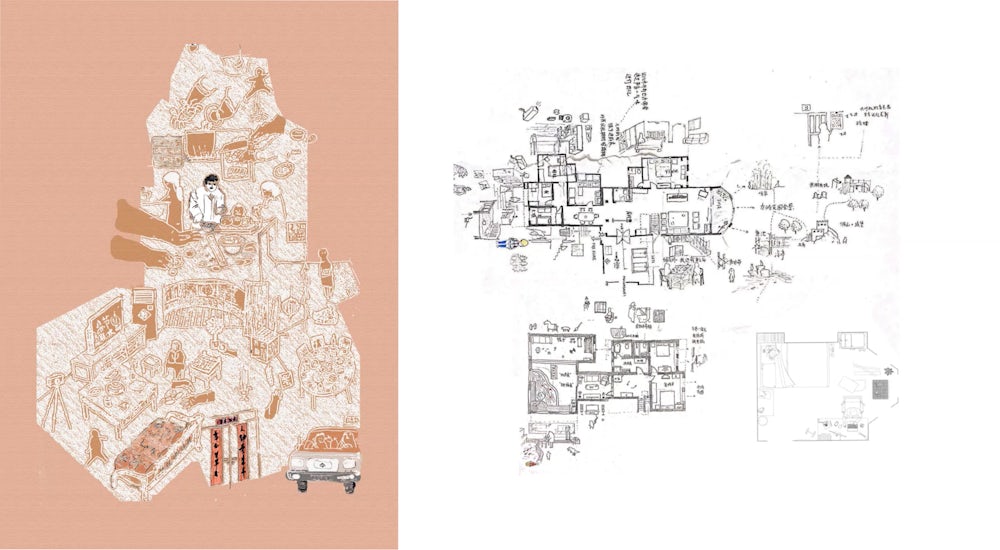Memory can have a drastic effect over one’s personal development; accurate or not, it is always a reflection and documentation of one’s subliminal thoughts and encounters with the world it dwells in. Therefore, the question is then: how can we store and represent our memories in a physical format that can be shared and preserved? Historically, photography is one of the main methods used to capture moments, it becomes a key reference and evidence of many historic events. However, most of our photos are representations of our visual dominance over haptic experiences and engagements with our surroundings, which could happen in a split second: a scent, a sound, a texture, or an atmosphere… Most of these moments in life that shape who we are today are buried deep in our subconscious in memory formats and they do not get reliable documentation in the same way as photos, and as we age, these memories will fade and become harder to be structured. Sometimes it takes a bodily engagement, a stimulus to evoke a certain piece of lost memory, and when it happens, it is a meaningful exercise to treasure and relive these moments and find ways to document them for one to come back to in future, whether it is to seek comfort or simply use it as an escape from the present. These selected readings resonate with my research, here are some intricate descriptions in 1984 about altered reality contradicting one’s memory: ” From somewhere at the bottom of a passage the smell of roasting coffee – real coffee, not Victory Coffee – came floating out into the street. Winston paused involuntarily. For perhaps two seconds he was back in the half-forgotten world of his childhood. Then door banged, seemed to cut off the smell as abruptly as though it had been a sound.” 1 ”The first whiff of its scent had stirred up some memory which he could not pin down, but which was powerful and troubling…. The first fragment of chocolate had melted on Winston’s tongue. The taste was delightful. But there was still that memory moving round the edges of his consciousness, something strongly felt but not reducible to definite shape, like an object seen out of the corner of one’s eye.” 2 Under the ongoing global pandemic and quarantine, I was missing the freedom of being with my family, friends, and homes physically. To relive these moments, I decided to compile some of my most significant memories through a series of paintings as a medium that I place myself in as an observer, a participant, and a dreamer, to fill the void caused by COVID-19. As my mind roams, one piece of memory leads to another like a chain reaction, from a childhood toy to a childhood friend, from my home in Cambridge to my grandparent’s home in Sichuan… I started to compile these elements from the past along with aids of sound files, stories, photos, and past items to form these into paintings that speak intimately to me regardless of how accurate these memories may appear. There will never be a finished piece to this exercise, the memories are from the past, but the paintings are going to be current and additive, eventually like a visual diary, private but storytelling. Or perhaps it takes other forms such as physical models, moving images or a combination. As long as I can come back to revisit, revise and further elaborate on it, the meanings and values of these forms will remain unchanged.
